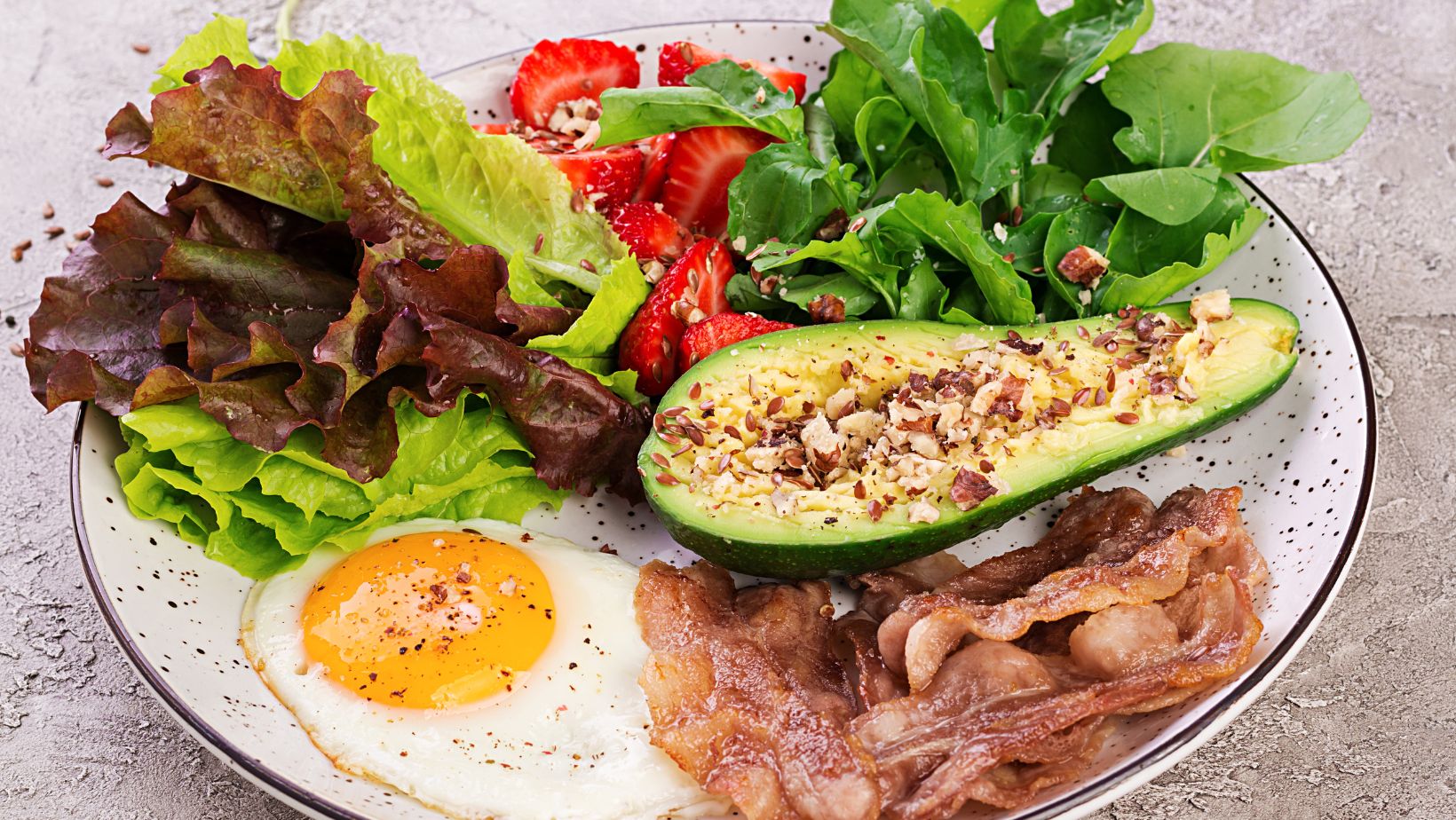
Nutritional Value of Kale
We’ve all heard it before, “Kale is a superfood”. But what does that really mean? Let’s break down the nutritional value of kale and see if it stacks up to its reputation.
One cup of raw kale (about 67 grams or 2.4 ounces) holds an impressive amount of nutrients.
- Calories: 33
- Protein: 3 grams
- Fat: 0.6 grams
- Carbs: 6 grams
- Fiber: 1.3 grams
But we’re not done yet! Kale’s got even more to offer with noteworthy levels of vitamin B6, potassium, and magnesium. It also contains antioxidants like quercetin and kaempferol which are believed to have heart protective, blood pressure lowering, anti-inflammatory, anti-viral, and even anti-cancer effects.
Now let’s tackle the question on everyone’s mind – is kale good for keto? With only about six carbs per cup – half of which come from fiber – it looks promising for those following a ketogenic diet plan.
In addition to its low carb count, kale can help increase your intake of fiber and micronutrients – both often lacking in typical keto diets due to restrictions on fruits, vegetables, and grains.

Is Kale Good for Keto
So, let’s dive right into the meat of the matter – is kale good for keto? Absolutely! We’re here to fill you in on why this leafy green fits so snugly into your ketogenic lifestyle.
Keto diets are all about keeping those carbs low and fats high. Naturally, we’d want our veggies to follow suit. And guess what? One cup of raw kale has just under 7 grams of carbohydrates and a mere 1 gram fat. Even better, it also offers around 1 gram of fiber which can help lower the net carb count.
But we’re not done singing praises yet! Kale doesn’t just fit well into your macros; it’s packed with nutrients too. It’s got Vitamin K, A, C, B6 along with minerals like manganese and calcium.
Benefits of Adding Kale to Your Keto Meals
Adding kale to your keto meals isn’t just about keeping things interesting. It’s also a fantastic way to boost the nutritional content of your dishes, helping you get the most out of every bite. We’ll delve into some key reasons why kale is good for keto and how it can positively impact your health.
Firstly, it’s important to note that kale is packed with vitamins and minerals essential for our bodies. In particular, it’s rich in Vitamins K, A, and C – nutrients often lacking in standard diets but crucial for overall wellness.
- Vitamin K supports bone health and aids blood clotting
- Vitamin A maintains eye health and boosts immunity
- Vitamin C promotes skin health and enhances iron absorption
Kale also offers plenty of antioxidants like quercetin and kaempferol which fight off harmful free radicals in our body, reducing the risk of chronic diseases.
Secondly, we’ve got fiber – an often-overlooked component in many low-carb diets. Despite its carb content, fiber doesn’t raise blood sugar levels as it isn’t digested by our bodies. This makes kale a great choice for those on a keto diet trying to keep their net carb intake low.
Most importantly for those following a ketogenic diet though is this fact: Kale is incredibly low in carbs! With only 6 grams per cup (raw), it fits perfectly within the daily macro goals set by most keto enthusiasts.
Lastly, let’s not ignore the versatility factor here. Whether you’re tossing it into your morning omelet or whipping up a quick side salad for dinner, there are countless delicious ways you can incorporate kale into your daily meal rotation without getting bored or breaking away from your dietary goals!
Remember that while we’re touring these benefits, individual results may vary based on factors such as personal metabolic rate or specific dietary restrictions. However one thing remains clear: Adding kale to your keto meals can provide a wealth of nutritional benefits without derailing your low-carb lifestyle.
